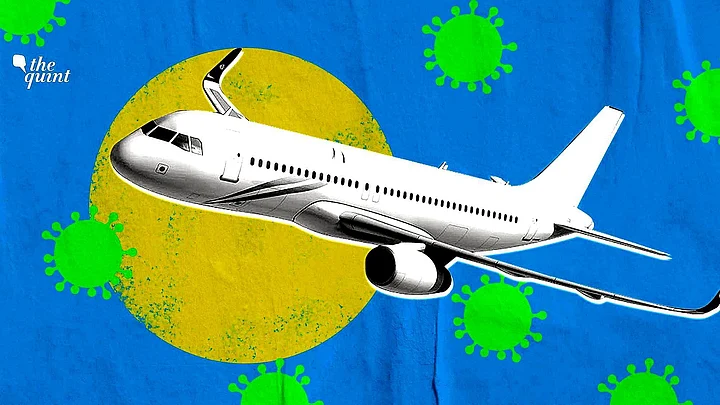Two days after the Union Health Ministry announced revised travel guidelines for international passengers, Maharashtra, on Tuesday, 30 November, announced four more guidelines, including making a seven-day institutional quarantine mandatory for passengers coming from ‘at-risk’ countries, that is, those where COVID-19 Omicron variant has been detected.
Citing “divergence,” Union Health Secretary Rajesh Bhushan on Wednesday, 1 December, wrote to Maharashtra Additional Chief Secretary Dr Pradeep Kumar Vyas stating that four specific guidelines passed by the state for international travellers are in “divergence with the SoPs and guidelines” issued by the Union ministry.
However, it seems that the state is sticking to what it has prescribed.
Maharashtra Chief Secretary Debashish Chakraborty said that the state would not “amend or revise” its guidelines but has deferred implementing the guidelines by two days to 3 December in order to provide Brihanmumbai Municipal Corporation (BMC) with time to ramp up its facilities and for passengers to become aware of the new rules, The Indian Express reported.
The new travel curbs come amid global concerns for the new COVID-19 variant – Omicron. The 'at-risk' countries include the United Kingdom (UK), South Africa, Brazil, Botswana, China, Mauritius, New Zealand, Zimbabwe, Singapore, Hong Kong, and Israel.
What Are Centre’s Guidelines?
Travellers from at-risk countries will have to get tested for COVID-19 post-arrival and will have to wait for their test results at the arrival airport before leaving or taking a connecting flight.
If tested negative, travellers will have to remain in home quarantine for seven days, with a retest on the eighth day.
However, if such travellers are tested positive, their samples will be sent for genomic testing at the INSACOG lab.
The positive patients will then be taken to an isolation facility and treated as per laid down standard protocol, including contact tracing.
Stressing that “people’s safety is top priority,” state minister Aaditya Thackeray clarified, "We have to do certain things in a stricter fashion because if you see the last time also – we were hit first, we were hit the hardest and we were always accountable and transparent... so we need to be a little cautious about our state," he told NDTV in an exclusive interview.
What Has Maharashtra Proposed in the State?
In the case of domestic air travel, passengers travelling within the state will either have to be fully vaccinated or compulsorily carry an RT-PCR test within 48 hours of the time of arrival.
In case of passengers from other states, negative RT-PCR test within 48 hours of arrival will be compulsory without exceptions.
Seven-day institutional quarantine mandatory for passengers coming from at-risk countries. Travellers will have to share their travel history for the past 15 days upon arrival.
The Brihanmumbai Municipal Corporation (BMC) began contacting passengers who arrived in the city from the countries of concern over the last 15 days.
Further, Chakraborty was quoted as saying, “Under the Disaster Management Act and Epidemic Diseases Act, the state government holds the power to put in additional conditions to prevent the spread of the virus. So the state, acting in accordance with its authority, has decided not to mend or revise the current guidelines issued for international passengers."
According to Chakraborty, the Centre’s communication is “an advisory, not a compulsion.”
Further advocating for the state’s additional guidelines, Dr Avinash Bhondwe, former president of Indian Medical Association, Maharashtra, said that compulsory quarantine was required.
He was quoted as saying, “Dubai contained the spread of the virus by implementing the same strategy. First, quarantine them, then test them. This helps in controlling possible exposure to non-infected people. The state’s guidelines are stringent but as the virus is here to stay, we need to get used to it," The Indian Express reported.
(With inputs from The Indian Express and NDTV.)
(At The Quint, we question everything. Play an active role in shaping our journalism by becoming a member today.)
